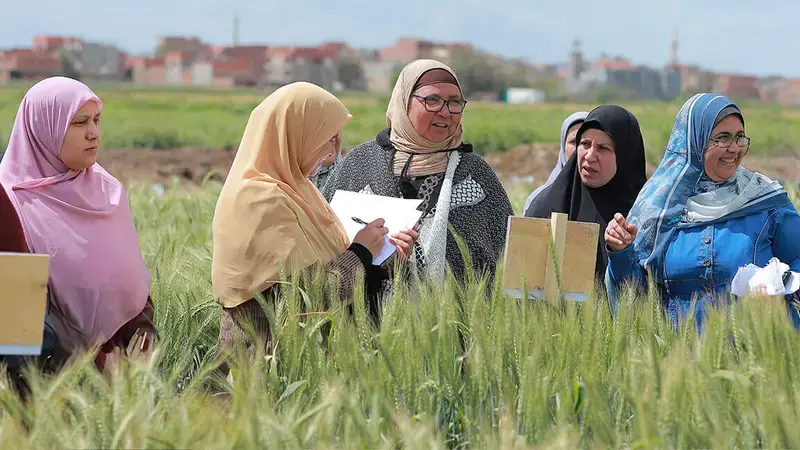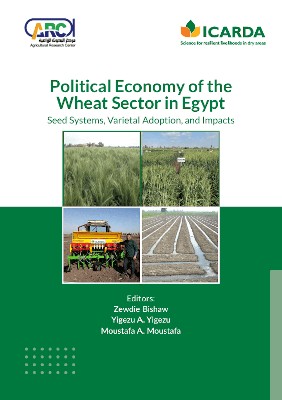New Book Explores the Political Economy of Egypt’s Wheat Sector

Despite decades of wheat research, many smallholder farmers across drylands still struggle to access improved wheat varieties - not only due to technical challenges, but more often because of institutional and political barriers.

A new publication from ICARDA and its national research partners sheds light on this issue. Political Economy of the Wheat Sector: Seed System, Varietal Adoption and Impacts, edited by Dr. Zewdie Bishaw (ICARDA), Dr. Yigezu A. Yigezu (ICARDA), and Dr. Moustafa A. Moustafa (Agricultural Research Center, ARC-Egypt), provides a timely analysis of the power relations, policy frameworks, and institutional factors that influence how wheat innovations are transferred — or not — from research centre breeding programs to farmers’ fields. The book features contributions by several colleagues who are experts in their fields from the Egyptian National Agricultural Research Systems (NARS), including the Wheat Research Department (WRD)of the Field Crops Research Institute (FCRI), the Central Administration for Seed Certification (CASC), and the Central Administration for Seed Production (CASP).
“We’ve long focused on developing high-yielding wheat varieties, but what this book highlights is that technological innovations alone are not enough. It is the political and institutional environment that ultimately determines whether these innovations reach the farmers who need them most. This publication offers both a diagnosis and a roadmap for reform.”
~ Dr. Zewdie Bishaw, Research Team Leader, Seed Systems, International Nurseries and Seed Health (SINH), ICARDA
What the Book Explores
- The architecture of formal and informal wheat seed systems
- How policies and institutional incentives influence variety release and adoption
- The political economy underlying barriers to adoption
- Insights from a country with dryland agriculture systems
- Recommendations on how to create more inclusive and functional seed systems
Why It Matters
This book argues that seed system reform must extend beyond addressing technical constraints alone. It calls for policymakers, researchers, development actors, and donors to address the underlying political economy that shapes seed access, regulation, and impact.
Regional Relevance
Wheat is a staple crop across the Central Asia, West Asia, and North Africa (CWANA) region, playing a vital role in food security, rural livelihoods, and political stability. CWANA is not only the centre of wheat origin and domestication but also one of the most wheat-dependent regions in the world, with many countries being both major producers and importers, and per capita consumption rates among the highest globally.
Now Available Online and in Print:
Online: https://hdl.handle.net/20.500.11766/70007
In print: Printed copies are available for key stakeholders in Egypt and across CWANA upon request.



